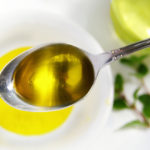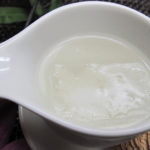What type of oil does your family use for cooking and frying on a daily basis? Maybe many families use soybean oil, or rice oil, peanut oil. So are they the best types for frying?
When frying, the temperature is usually around 176 – 190°C, which is the best temperature for the surface of the food to quickly seal, preventing oil from being absorbed inside and allowing the water inside to evaporate, making the food crispy and avoiding oil absorption. If fried at low temperatures, the oil will be absorbed into the food, making it greasy and heavy. But if fried at too high temperatures, the food will become dry and not tasty, and the oil will be oxidized quickly.
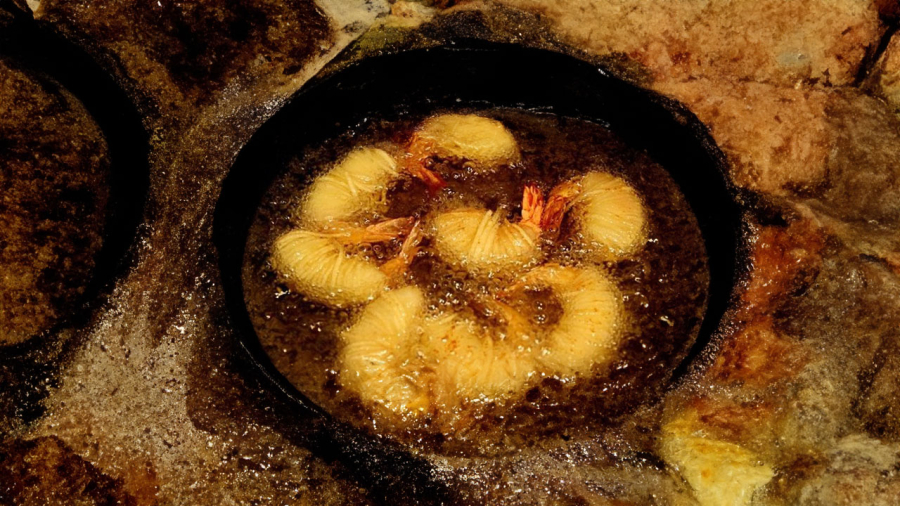
Each type of cooking oil can withstand different temperatures. Therefore, not all cooking oils should be used for frying.
Oils with a high smoke point, meaning they have a high resistance to heat and can only be altered at high temperatures, are better for health than oils with a low smoke point. When the oil has a high smoke point, it will oxidize slower during the frying process; Oils with a higher content of saturated fats tend to be more stable when heated. Both saturated and unsaturated oils are good for frying.
Coconut oil is a healthy choice
Some studies have shown that even after 8 hours of continuous deep frying at a temperature of 180°C, its quality is still acceptable. Over 90% of the fatty acids in coconut oil are saturated, making it more heat resistant. However, frying with coconut oil can leave a coconut smell on the food, so it is not always the best choice.
Animal fats (pork fat, beef fat, buffalo fat…)
Animal fats, such as pork fat, can be an excellent choice for deep frying food because fats help make the food crispy and have the ability to resist damage during frying. Most fatty acids in animal fats are saturated and unsaturated. This makes them able to withstand high temperatures.
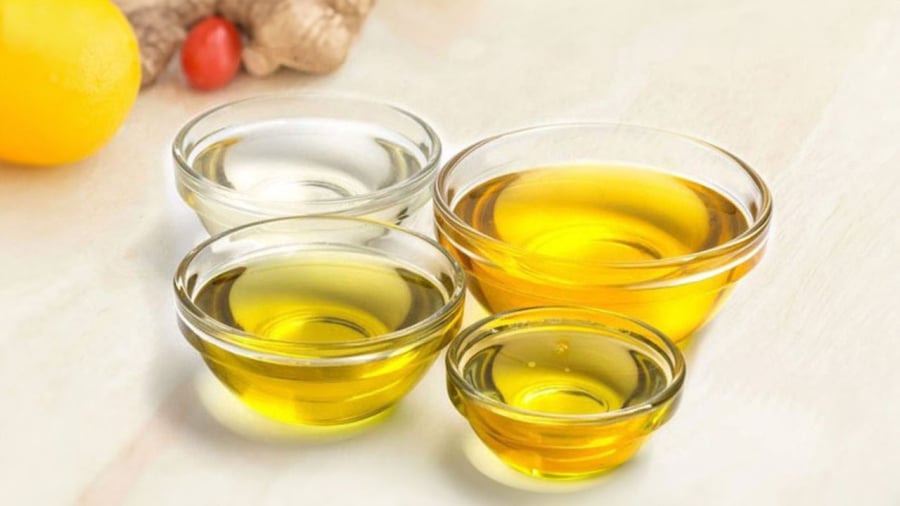
Other good cooking oil choices for frying
Olive oil: Olive oil is one of the healthy oils because it has a high smoke point. It is heat-resistant because, like animal fats, it contains many unsaturated fatty acids. They only have one double bond, so they are relatively stable. A study showed that olive oil could be deep-fried for 24 hours before being oxidized.
Butter oil: Avocado oil also has a composition similar to olive oil. It is mainly monounsaturated fats with a mixture of saturated and unsaturated fats. Refined avocado oil has a smoke point of 270°C.
Peanut oil: This is also a good oil for frying as it has a smoke point of 230°C. It is popular for deep frying because it has a neutral flavor. However, peanut oil may not be as good for health as some other options. Peanut oil contains about 32% polyunsaturated fats. This is a relatively high amount, making it susceptible to oxidation at high temperatures.
Palm oil: Palm oil is a good oil for frying because it mainly consists of saturated and unsaturated fats. The taste of palm oil is neutral, especially if using unrefined palm oil, known as red palm oil. However, some people are concerned about the sustainability of palm oil cultivation and harvesting.
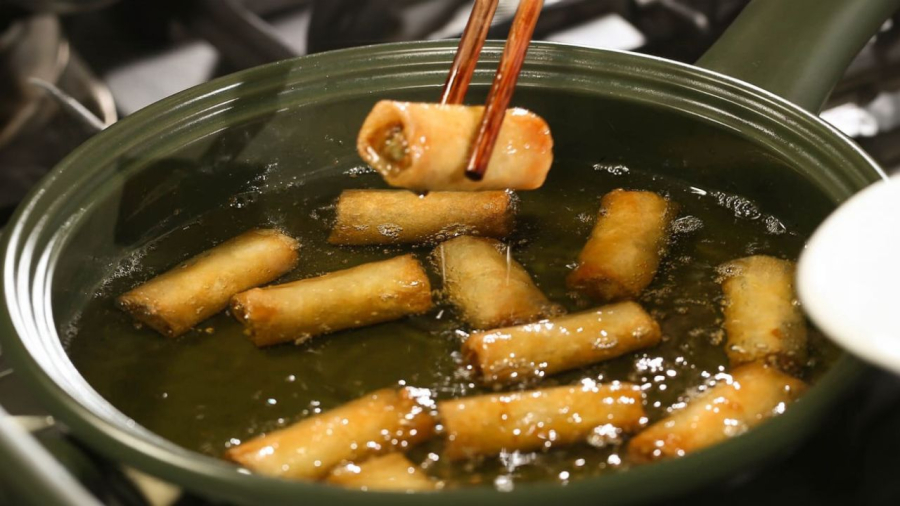
Unsuitable frying choices
Soybean oil, corn oil, sunflower oil, sesame oil are oils that should be limited for deep frying and high temperatures. Using these oils for deep frying can generate a large amount of oxidized fatty acids and harmful compounds.
Therefore, reconsider frying in the family, avoid using excessive amounts of deep frying oils, and limit consumption of fried foods. Fried foods, even when using good oils, can still contribute to high calories and bad fats for the body.
Consuming too many fried foods can lead to obesity, cardiovascular issues, and an increased risk of inflammatory conditions in the body.
Tips on Selecting Healthy Cooking Oil and Safe Ways to Cook with It
A Taiwanese company has made a significant impact on the food industry through the recycling of over 700 tons of dirty oil, which has been exported to over 12 countries, including Vietnam. This has raised a few eyebrows among housewives, as cooking oil is an essential condiment in daily cooking. To ensure the safety and quality of their cooking oil, consumers should take note of the following advice.
Explore the Benefits of Using Olive Oil for Stir Frying
Is olive oil a viable alternative to vegetable oil in cooking? This is a trend that has been increasingly popular with women in recent years, as they look for healthier options to improve their health. But is this really the best option?


























